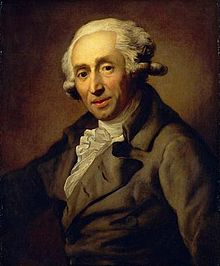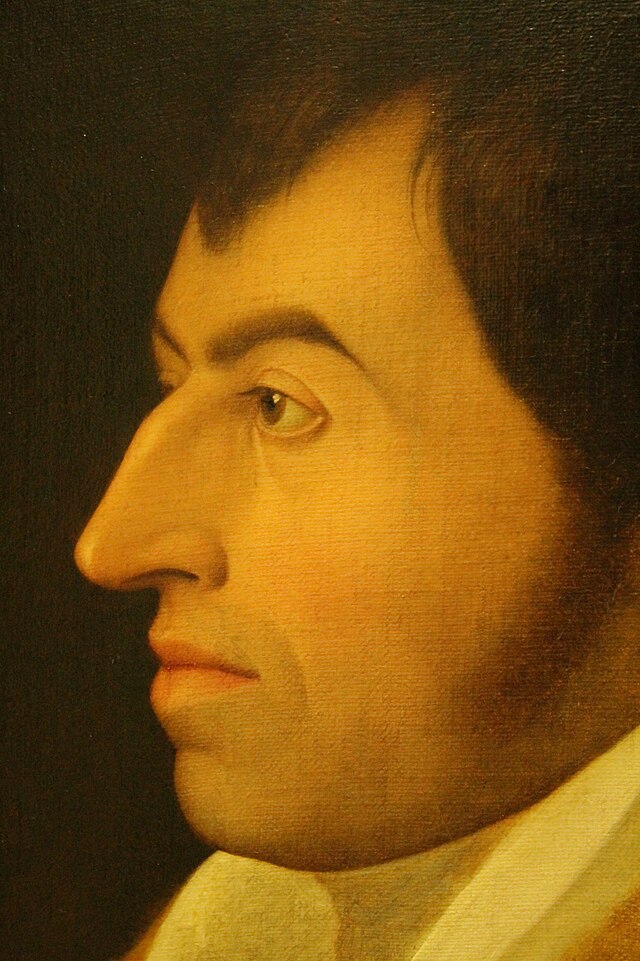Loading AI tools
German anthropologist, physician and philosopher From Wikipedia, the free encyclopedia
Ernst Platner (/ˈplɑːtnər/; German: [ˈplatnɐ]; 11 June 1744 – 27 December 1818) was a German anthropologist, physician and Rationalist[1] philosopher, born in Leipzig. He was the father of painter Ernst Zacharias Platner (1773–1855).
Ernst Platner | |
|---|---|
 Portrait by Anton Graff | |
| Born | 11 June 1744 |
| Died | 27 December 1818 Leipzig, Electorate of Saxony |
| Education | University of Leipzig (M.D., 1767) |
| Era | 18th-century philosophy |
| Region | Western philosophy |
| School | Rationalism[1] |
Main interests | History of philosophy, medicine |
Notable ideas | The Unconscious Pragmatic history Psychosomatic medicine |

Following the death of his father in 1747, the philologist Johann August Ernesti became his foster father. He received his early education at the gymnasium in Altenburg, the Thomasschule in Leipzig and at the gymnasium in Gera.[2] Afterwards, he studied at the University of Leipzig, where in 1770 he became an associate professor of medicine. Later at Leipzig, he was appointed a full professor of physiology (1780) and philosophy (1811). In 1783/84 and 1789/90 he served as university rector.[2]
Platner was a follower of the teachings of Leibniz. He was the author of Anthropologie für Aerzte und Weltweise, one of the more important anthropological works of the Spätaufklärung (an epoch of German literature). This work was influential to scholars that included Johann Gottfried Herder, Friedrich Schiller and Karl Philipp Moritz. He believed in treating modern anthropology as a medical-philosophical science of the whole individual — a viewpoint that can be considered as a precursor of psychosomatic medicine.[3]
Platner is credited with originally coining the term Unbewußtseyn (unconscious).[4] He is also credited for coining the phrase "pragmatic history of the human faculty of cognition" (pragmatische Geschichte des menschlichen Erkentnißvermogens),[5] later appropriated by Johann Gottlieb Fichte as "pragmatic history of the human spirit" (pragmatische Geschichte des menschlichen Geistes).[6]
Seamless Wikipedia browsing. On steroids.
Every time you click a link to Wikipedia, Wiktionary or Wikiquote in your browser's search results, it will show the modern Wikiwand interface.
Wikiwand extension is a five stars, simple, with minimum permission required to keep your browsing private, safe and transparent.